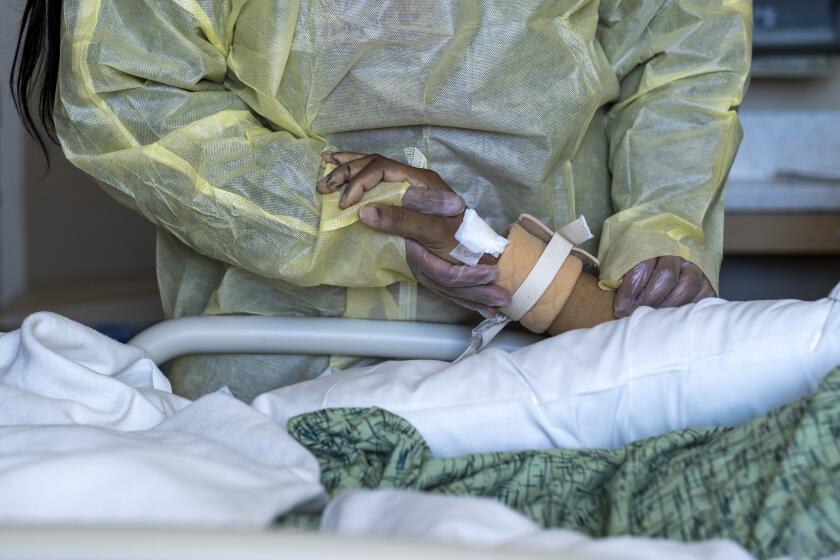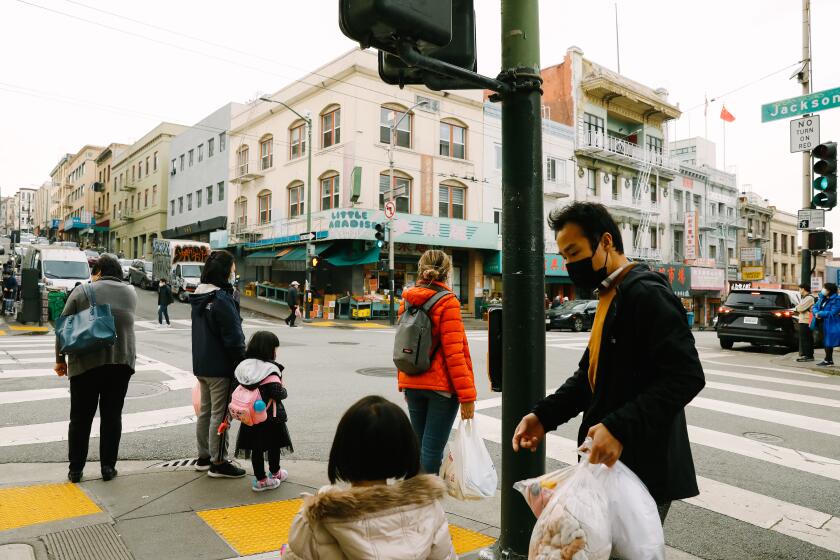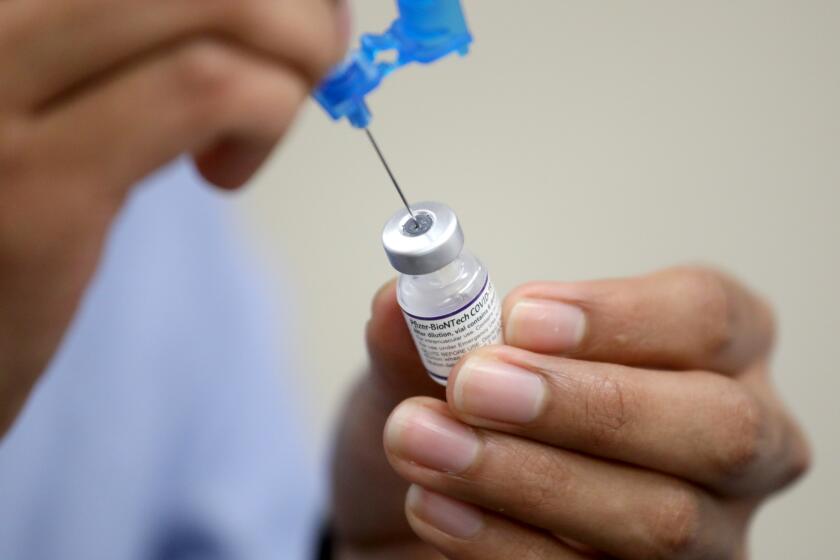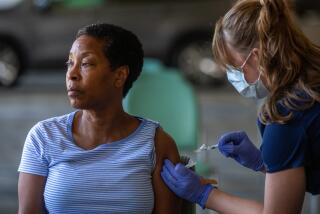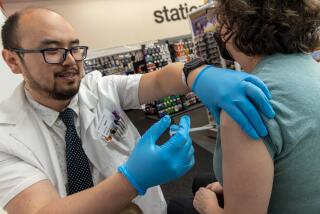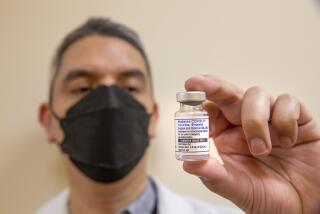Johnson & Johnson recipients can get third COVID shot in San Francisco
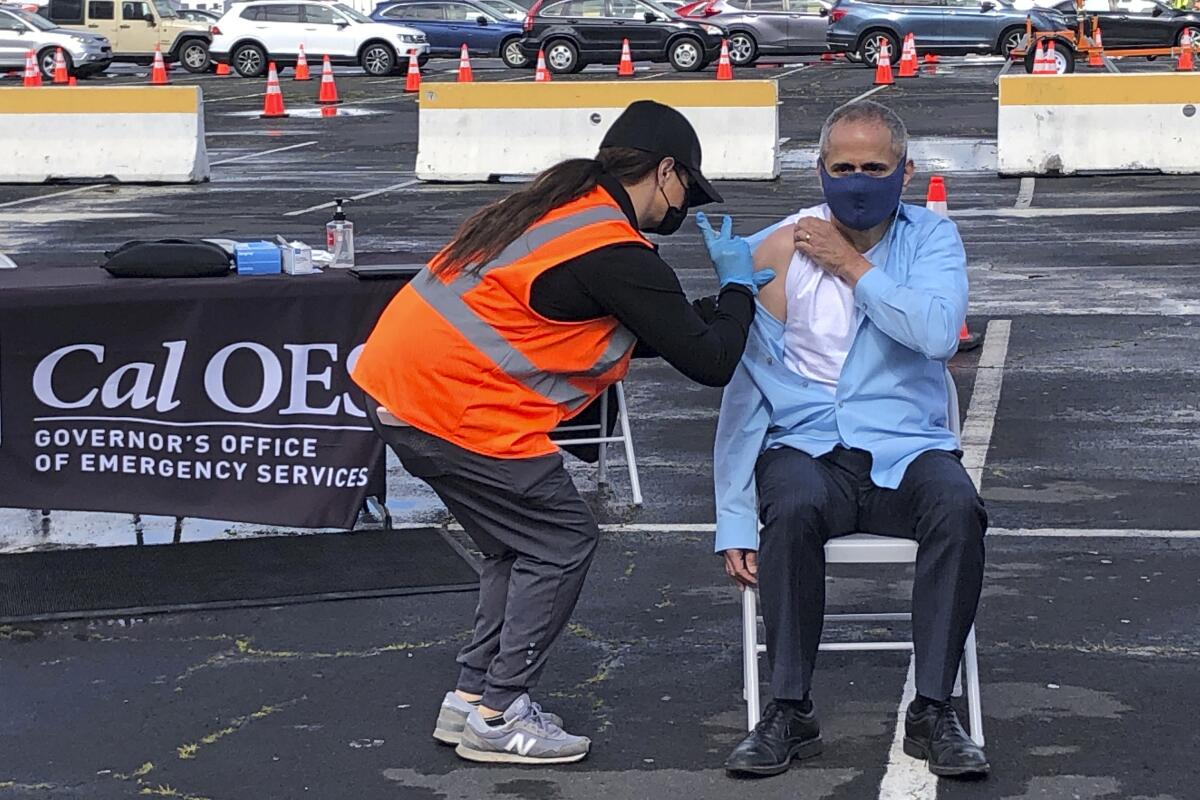
- Share via
SAN FRANCISCO — San Francisco health officials are allowing people who originally got the Johnson & Johnson COVID-19 vaccine to get a second booster shot — which would give them access to the same number of doses currently available to recipients of Pfizer-BioNTech or Moderna.
The allowance of a potential third dose to J&J recipients in San Francisco goes beyond the guidance outlined by the federal government. The U.S. Centers for Disease Control and Prevention says those who got J&J — which is formulated as a single-shot vaccine — are eligible to get one booster at least two months after their initial dose, but federal health officials have not yet made statements about further follow-up shots.
By contrast, those who are up to date on Pfizer-BioNTech or Moderna — collectively known as mRNA vaccinations — could already have received three shots.
“We are now offering what we’re calling a supplemental dose to J&J recipients,” Dr. Grant Colfax, the San Francisco health director, told health commissioners Tuesday.
This is the latest coronavirus wave where, compared to Southern California, the Bay Area has fared relatively better, and local officials this time credit high rates of vaccination and booster shots.
Vaccine clinics operated by the San Francisco Department of Public Health are accommodating off-label requests for a third dose for those who originally got the J&J vaccine. The city says the supplemental shot must be Pfizer-BioNTech, and will be allowed five months after the second dose.
San Francisco officials said only city residents or non-San Francisco residents who got their J&J shot in the city are eligible for a third dose. The city, however, is urging other local vaccination providers to adopt the same policy.
The lack of federal action has caused some consternation among J&J recipients who are eager for a third shot. And some experts have already suggested that J&J recipients who have gotten a second dose should be getting a third one.
“If I had been a person who had the J&J vaccine originally, I would go for a third shot,” Dr. Paul Sax, an infectious diseases expert at Harvard Medical School, said at a UC San Francisco online discussion in December.
The new rules, which take effect Tuesday, come as the Omicron surge is flattening after weeks of record-setting infections.
Sax referred to preliminary data showing that antibody levels resulting from a J&J recipient getting an mRNA booster “were substantially lower” compared with those seen in people who had received three consecutive mRNA shots.
San Francisco outlined the allowance of an additional booster for J&J recipients in a document dated 2 1/2 weeks ago.
The city cited recent studies showing that a third vaccine dose is needed for J&J recipients to induce adequate antibody levels, as immunity wanes several months after a second dose.
This diminished protection would put even a vaccinated and boosted individual at higher risk of symptomatic infection — particularly given the extreme infectivity of the now-dominant Omicron variant of the coronavirus.
The move could open the way for the very youngest in the country to start receiving shots as early as March.
San Francisco can decide to allow a third dose, the city said in its memo, because the Pfizer-BioNTech vaccine has full approval from the U.S. Food and Drug Administration for prevention of COVID-19 in adults. “FDA approval of the vaccine provides leeway for off-label prescribing, in contrast to FDA emergency authorization,” the document says.
During the pandemic, San Francisco has, at times, acted faster than the federal government. In August, as the Delta surge was worsening, San Francisco began accommodating special requests from J&J recipients to get an mRNA booster. At the time, the city said, “This is an accommodation that is expected to be of interest to a small minority of J&J vaccinees and it is not a recommendation or guidance for J&J vaccinees in general.”
The U.S. government followed suit shortly thereafter, allowing J&J recipients to get their first booster shot starting in October.
U.S. health officials also now recommend that most Americans should get an mRNA vaccine instead of J&J — as the latter carries the risk of rare but serious blood clots.
More to Read
Sign up for Essential California
The most important California stories and recommendations in your inbox every morning.
You may occasionally receive promotional content from the Los Angeles Times.
